Before the season sales come preseason jitters.
Weeks before the next holiday, eCommerce stores make preparations to see sales numbers increase with the spike of traffic that accompanies holiday cheer. However, said businesses often fail to account for weak infrastructure. And this often causes websites to crash with the increased load.
That means you need to ensure your website hosting doesn’t let you down.
Picking the Right Ecommerce Hosting Platform
Choosing the right ecommerce hosting platform decides the kind of infrastructure your website will have.
According to eMarketer, total holiday retail spending in 2018 increased by 5.4%, reaching $998.32 billion. While traditional brick-and-mortar retail saw a 3.9% rise going up to $874.42 billion, the ecommerce industry grew by 16.7%, reaching up to $123.90 billion during the holiday season. Additionally, Statista predicts a whopping increase in worldwide ecommerce sales, up to $4.5 trillion by the year 2021.
What’s more, enterprises have been increasing their spending on cloud computing ever since COVID-19 necessitated radical changes. Though the current shift to the public cloud initially caused organizations to exceed their budget by 23%, it is now expected cloud spending will increase by 47% by next year. This raises some concerns about handling cost optimization and forecasting.
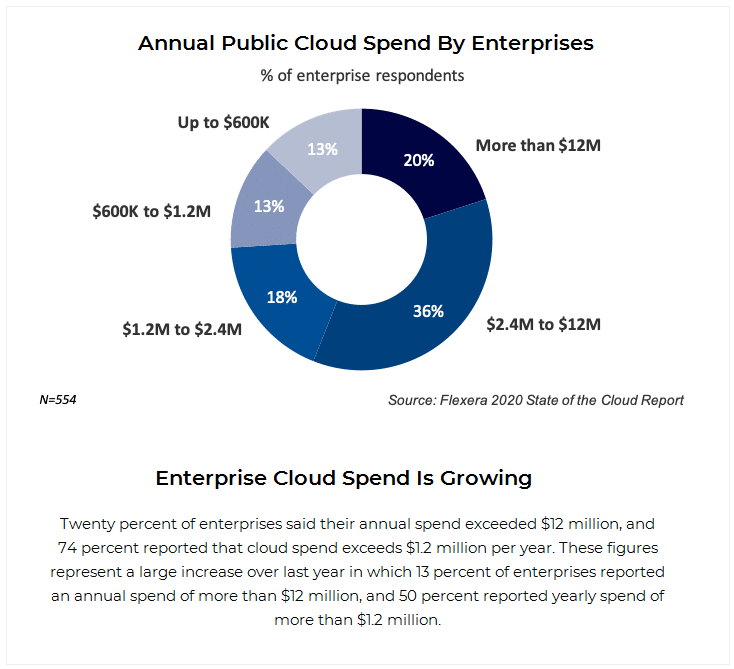 Source: Flexera Blog
Source: Flexera Blog
Given the impressive sales forecast and the shift towards cloud spending, online stores need to ensure a smooth customer experience to make the best of the holiday season. But this is not without its hefty share of challenges.
Read on to find out just how you can prepare your online store for a successful holiday season.
Web Hosting Challenges for Online Stores During the Holiday Season
Business owners, agency owners, and freelancers face no shortage of challenges. You have to handle so many aspects of your business, from operations and product delivery logistics to customer relationship building and marketing. The last thing you would want to deal with is having your website go down because the hosting server couldn’t handle the traffic load.
Scalability
I can’t stress the significance of this factor strong enough, which is why I’ve mentioned it in the very beginning. You should be able to scale your server resources when needed, such as during a predictable traffic spike. If you’re using a dedicated or shared server, there’s a good chance your website will suffer from downtime following the high traffic volumes, rendering all your marketing and promotional efforts useless.
Security
Whether you sell watches on your eCommerce store or own a ticket booking website to book tickets, sensitive customer data security is your top priority. Sensitive data may include credit card details, residential addresses, mobile phone numbers, emails, and more. These need to be safe from malicious attacks.
Website Speed and Performance
Your website needs to perform seamlessly to retain your target audience. With a managed cloud hosting platform, you can use the user interface to monitor the server and web application alongside the support of a reliable team to work with. According to Kissmetrics, about 40% of mobile users complain that eCommerce stores don’t load at all on their mobile phones, while about 70% of them complain that the store loads too slowly.
If your website takes too long to load, you’ll face issues like a high bounce rate, cart abandonment, and lower positioning in search results. This isn’t solely related to optimizing the website, but also includes the server location, assigned bandwidth, and the server stack being used.
The Answer to Your Woes: A Reliable Managed Cloud Hosting Platform
A reliable cloud hosting platform can go a long way in growing your business. You’ll have more time to build relationships with your customers, act on feedback on your products/services, and work on strategies to expand your business.
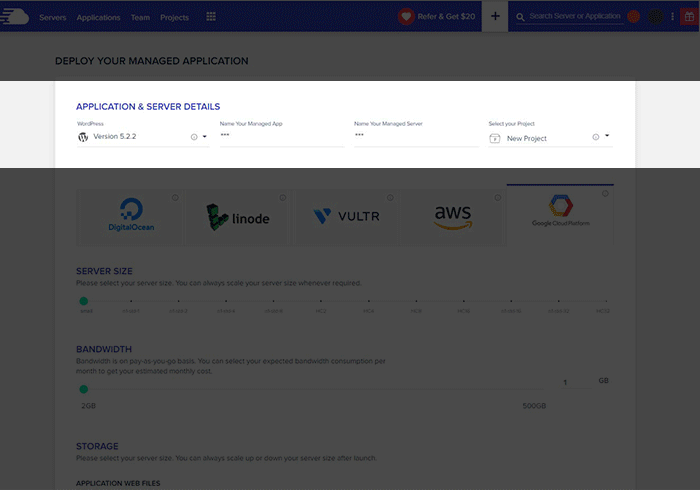
Here’s how a managed cloud hosting platform eases your work:
- A cloud hosting service is not limited to a single server like traditional hosting providers.
- Cloud hosting offers unparalleled online business scalability.
- Shared hosting will only offer two to three different domains at one time. However, a cloud server can offer unlimited domains that you can point to a single server.
- You can virtually manage your server.
- You get data backup and recovery solutions that other web hosting companies do not offer.
- You only pay for the resources you consume.
A managed cloud hosting platform is the ideal solution for business owners and entrepreneurs lacking much-needed technical skills to manage a server effectively. The platform facilitates these users by managing all server-related technicalities.
Some Noteworthy Features to Look Out For
Scalability
Ecommerce websites need to be scalable so they don’t run out of server bandwidth when an important promotional event occurs. That’s where managed cloud hosting platforms assist greatly. They offer easy scaling solutions for server memory, bandwidth, and storage capacity.
Security
Your eCommerce website security relies on your team and the hosting service you choose. Some of these hosting companies provide free SSL certificates for website data encryption, along with 24/7 server monitoring and dedicated support teams.

You should always follow the latest security SOPs and guidelines to protect your customers. Regularly run security checks and server maintenance checks on your website to avoid any trouble.
Performance
Regardless of the web application you use, your hosting provider’s server stack should optimize your online store bringing the loading time to under a second. Whether your online business is on Prestashop, WooCommerce, or Magento, you should see excellent results every time.
Uptime
While many web hosting companies claim to have 99% uptime, they often fail to keep this promise. Consider looking for reviews where developers test-out servers and their performance metrics. Most web hosting companies roll out reviews and blog posts about how their servers have been performing lately.
Access to Support
It’s important to identify the different methods of accessing the support team of your hosting provider. If the support team has multiple channels and access points it would be easier for you to reach out to them.
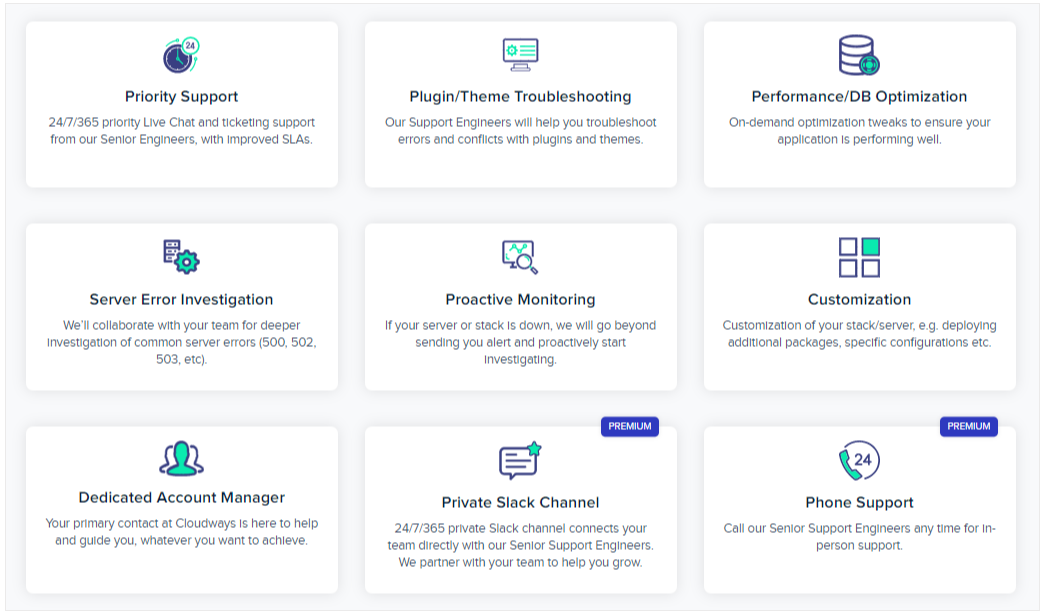
In light of recent competition, most hosting providers work towards constantly improving their customer support response time. One of the methods they’ve adopted is using ChatBots.
ChatBots help automated processes and help you achieve objectives with ease. They can be assigned specific tasks and can notify the user accordingly. For instance, they can set reminders so the user knows that the next automated backup is nearing. You can also set certain actions, like notifying the user when server resources are being consumed at a certain level.
Automated & Managed Backups
Most hosting services don’t allow users to set their frequencies when creating website backups. In contrast, managed cloud hosting platforms offer the convenience of setting your own frequencies of automatic website backups so your data is always safe.
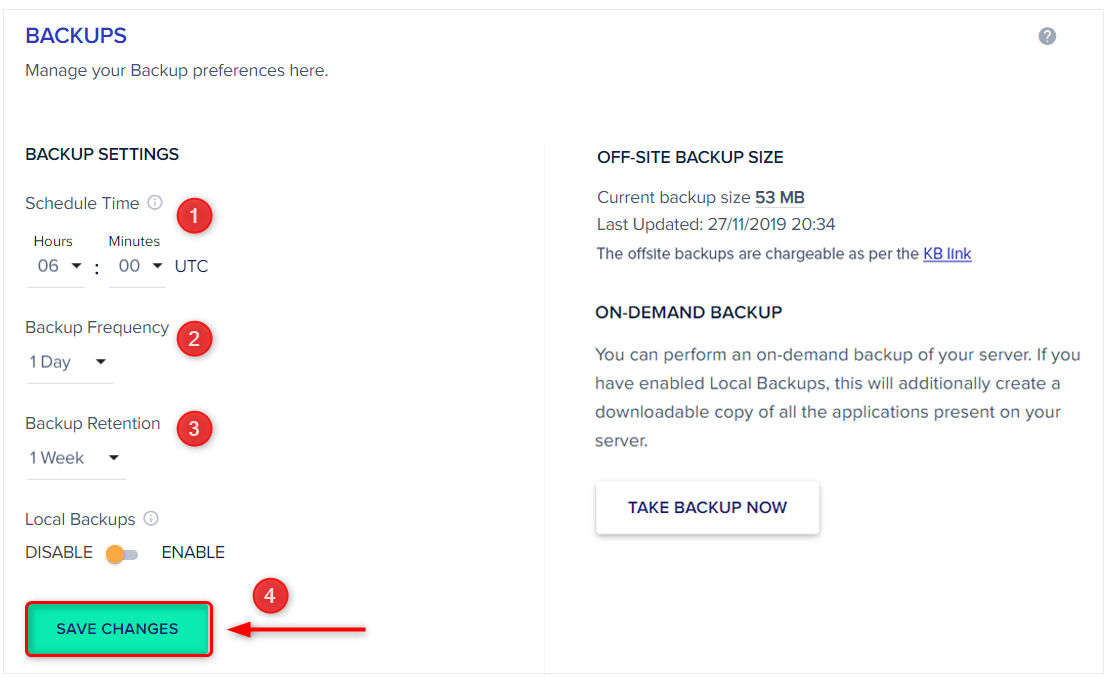
Cloudways – A Perfect Managed Ecommerce Cloud Hosting Platform
Cloudways is amongst the leading managed cloud hosting platforms that offer hassle-free cloud management services. This top eCommerce hosting platform is fast, secure, and scalable. Plus, while most reliable web hosting services charge around $20 to $25 per month, Cloudways lets you host multiple websites on the Cloudways platform for as low as $10 per month. And you only have to pay for the resources you consume.
Cloudways provides cloud hosting of the following infrastructures.
- Digital Ocean
- Vultr
- Linode
- Amazon Web Services
- Google Compute Engine
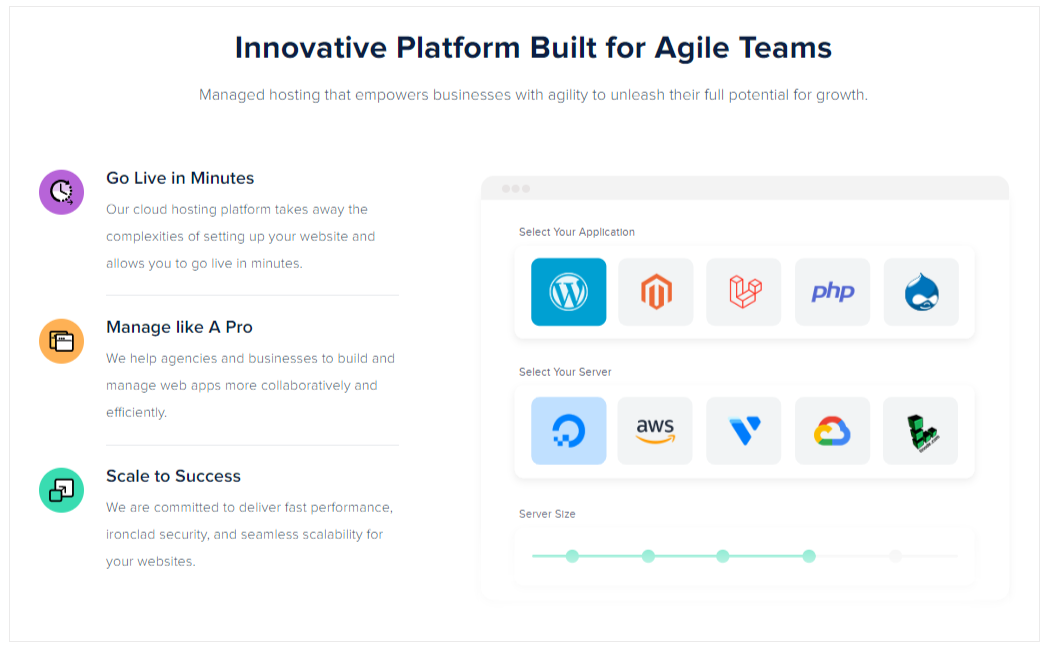
Bonus Tip: Earn Recurring Income with an Affiliate Program
You can supplement your main income with a passive income through the Cloudways Affiliate Program. While you promote your eCommerce website, Cloudways gives you the opportunity to earn via three payment models: Slab, Hybrid, and Custom.
There are no lock-ins in the flexible payment cycles and you can consistently earn a passive income. This affiliate program is the best fit for performance marketers, bloggers, media publishers – and it now extends to you, business owners.
There’s an extensive article on how you can join the Cloudways Affiliate Program, in case you want to see more details.
In a Nutshell
The hosting platform for your eCommerce store plays a crucial role in your business’s success. Hosting features directly affect your business bottom line and the privacy of your customer data, among other things. The real benefit of planning and working alongside a reliable eCommerce hosting solution is that it grows your online business while reducing any hassle.







